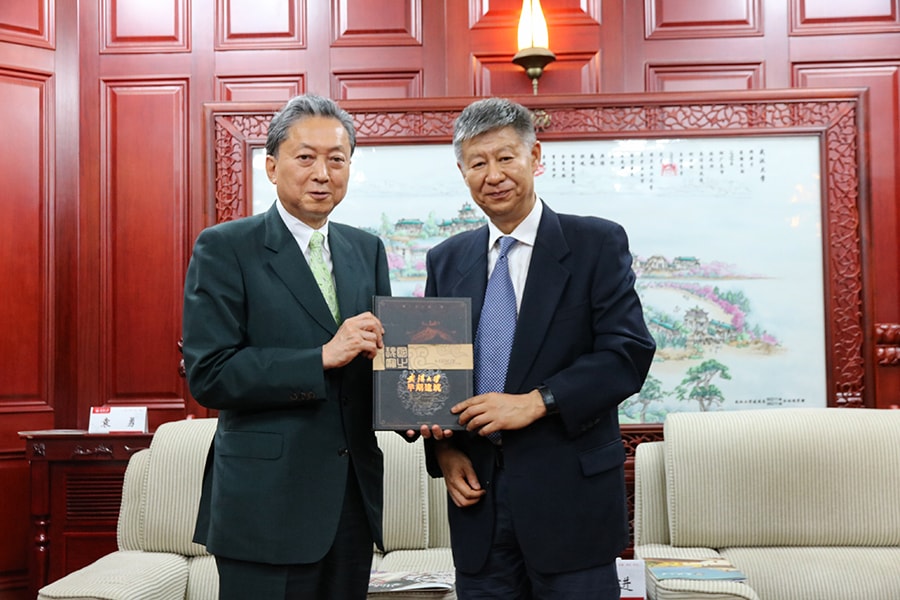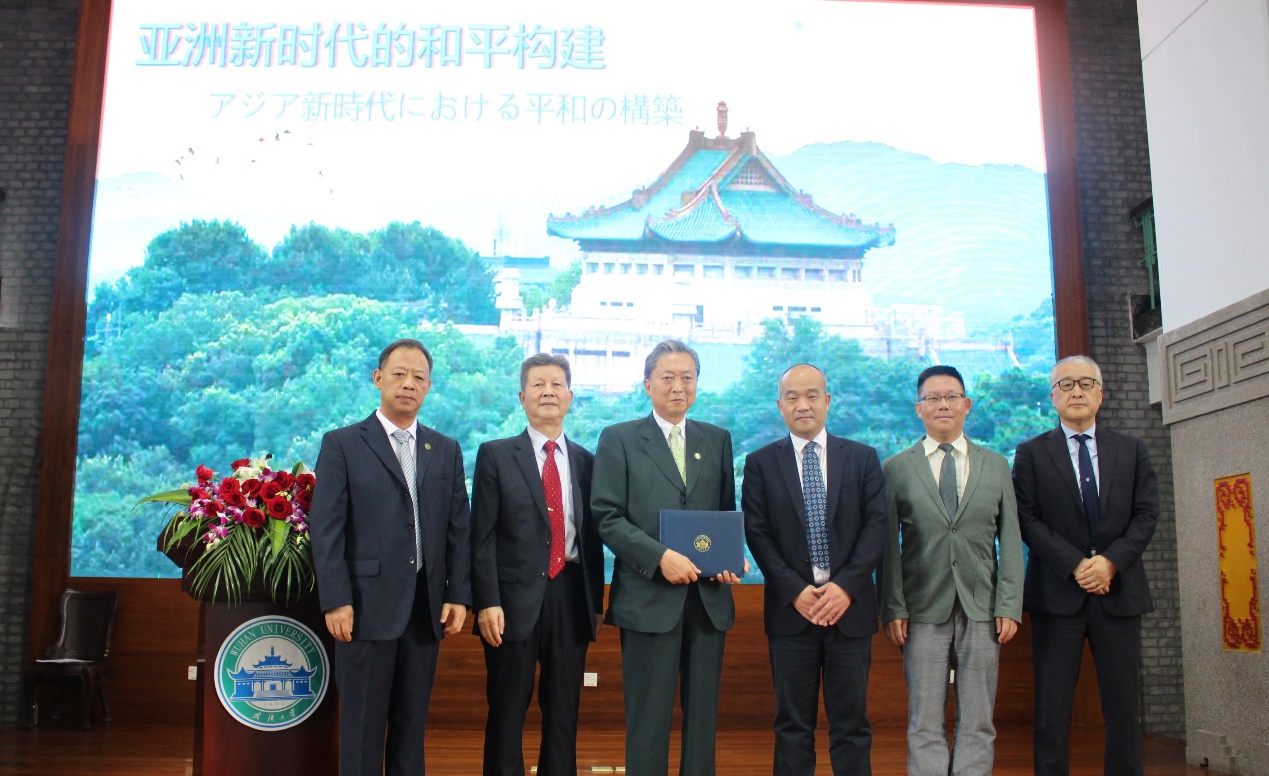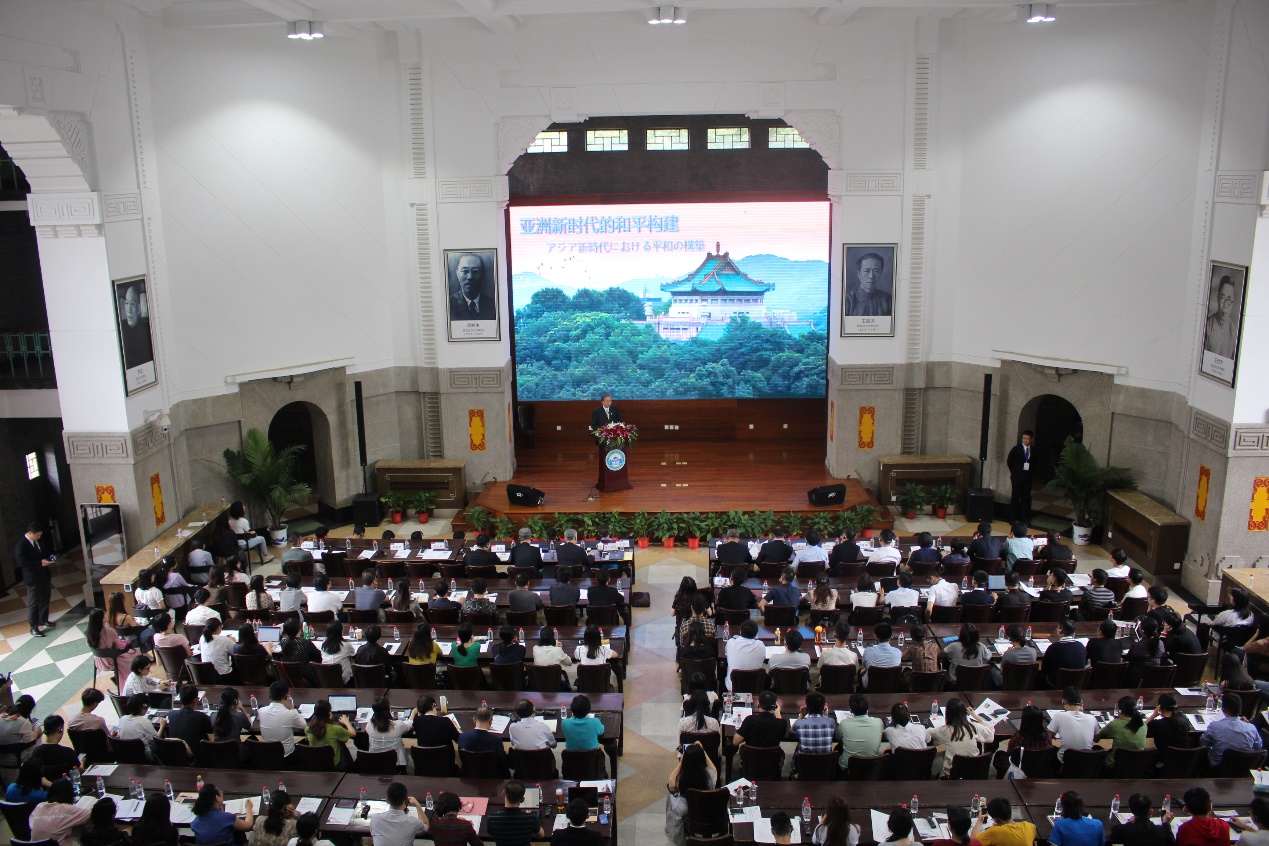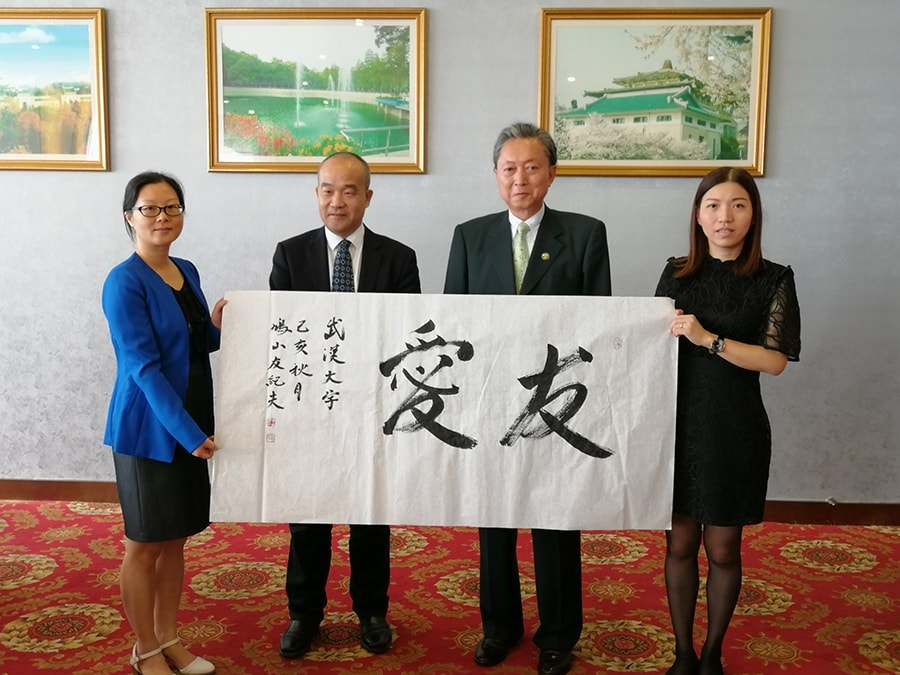Former Japanese Prime Minister Yukio Hatoyama visits WHU
Sep 25, 2019 Clicks:
On September 25, former Japanese Prime Minister Yukio Hatoyama, along with two colleagues, visited Wuhan University at the invitation of WHU Research Center for Japanese Studies.
At 9:00 am, Han Jin, the Party Committee Secretary of WHU, met with Mr. Hatoyama at the reception hall of Administration Building. Secretary Han introduced to Mr. Hatoyama the history of Wuhan University and the work of WHU Research Center for Japanese Studies. WHU devotes to build a world-class university and endeavours to promote dialogue and mutual understanding among different cultures. Today’s visit just represents the tip of WHU’s commitment.

Secretary Han (right) meets with Mr. Hatoyama (left)
“This is my first visit to WHU. I would like to come here again when cherry blossoms bloom”, Mr. Hatoyama said. Cherry blossom trees are widely planted in the university after China and Japan achieved normalization of diplomatic relations. The trees are, therefore, the symbol of friendship between the two countries. Based on the concept of fraternal love, Mr. Hatoyama has been striving for multilateral cooperation among different cultures. He expressed his gratitude to the precious chance to visit WHU and share his ideas with teachers and students.

Mr. Hatoyama visits WHU’s History Museum and overlooks the campus
Mr. Hatoyama was appointed as an honorary professor of WHU at the ceremony held in old library. Dou Xiankang, president of WHU, attended the ceremony for conferring the title at the History Museum. President Dou gave the warm welcome to Mr. Hatoyama’s visit and indicated that today is a special day, for it is the 47th Anniversary of normalization of diplomatic relations between China and Japan. 47 years ago, Japanese Prime Minister Kakuei Tanaka came to China at the invitation of Premier Zhou Enlai. 47 years later, Mr. Hatoyama visited WHU.
Mr. Hatoyama has been enhancing friendship, communication and cooperation with China for long. Meanwhile, since the establishment in 2007, WHU Research Center for Japanese Studies has been covering researches in China-Japan relations and several aspects of Japan, including history, culture, literature, economy and laws. After President Dou presented the appointment letter to him, Mr. Hatoyama acknowledged “It is a great honour for me to receive the degree in Wuhan University. Please treat me as part of you.”.

Mr. Hatoyama is awarded Honorary Professorship by WHU
Later, Mr. Hatoyama delivered a speech entitled “Promoting Peace in Asia’s New Era”. He quoted the beginning of The Totalitarian State against Man written by Count Richard N. Coudenhove-Kalergi, pointing out that the era when “man” instead of “the state” becomes “an end” is yet to come. Nowadays, states should adopt fraternal love to face challenges, avoid conflicts and cooperate with each other.
Fraternal love means respect, understanding and mutual help, which entails independence and intergrowth. It can be applied to the relations between men, states, and even man and nature. He illustrated that Benevolence (Ren) and forgiveness (Shu) that Confucius advocated embody the essence of fraternal love.
East Asia region is expected to establish a community based on this concept. Along with ten ASEAN (Association of Southeast Asian Nations) countries, China, Japan and Korea may become the core of the East Asia Community. He also mentioned that he supported the Belt and Road Initiative proposed by President Xi Jinping because the aim of this is to achieve peace around the globe.

Mr. Hatoyama is delivering a speech to WHU teachers and students
At the end of the speech, Mr. Hatoyama expressed the wish to build a society with fraternal love. Men and states should understand, believe and help each other. Men and nature should coexist in harmony. In the Q&A session, teachers and students had discussions with Mr. Hatoyama about Sino-Japan relations, youth exchanges, mutual learning, the Belt and Road Initiative and trade friction.

Mr. Hatoyama presents his inscription of “fraternal love”
Photo by Cui Wenjing, Shu Pei, Jin Xin & Li Xiaokun
Edited by Zhou Siyan, Geng Jinwei, Zheng Yayun & Hu Sijia
